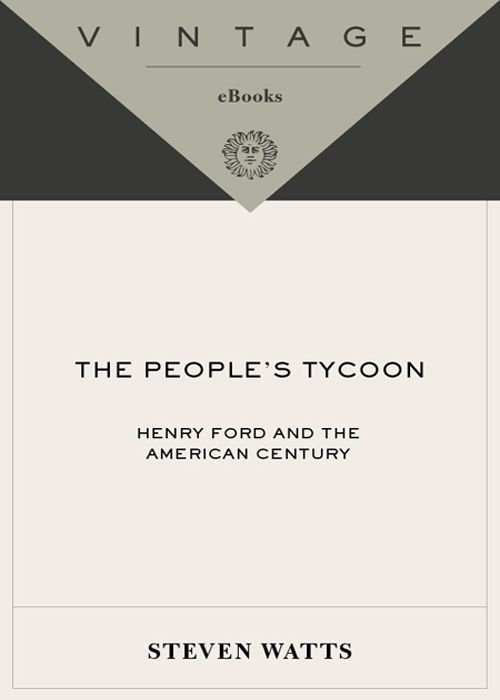
The People's Tycoon
Henry Ford and the American Century
کتاب های مرتبط
- اطلاعات
- نقد و بررسی
- دیدگاه کاربران
نقد و بررسی

Starred review from June 27, 2005
Performing the same magnificent feat for Henry Ford as he did for Walt Disney (in The Magic Kingdom
), historian Watts offers a magisterial and balanced biography of one of America's business legends. As a farm boy in Michigan, Ford (1863–1947) followed the beat of his own drum, avoiding hard work but watching farm machinery with fascination. He objected to wasting physical energy when a machine could accomplish the same task in less time, and spent much of his leisure taking watches apart and rebuilding them to learn about their mechanisms. Once he moved to Detroit, Ford worked as an engineer at the Edison Illuminating Company, where he quickly became famous for his ability to patch up engines. Then, in 1898, he invented the prototype of his Model A car, secured investors to set up a business and established the first unit of what would become the Ford Motor Company. Watts deftly traces Ford's rise to fame and the innovations, such as the "five-dollar" workday, which doubled factory workers' salaries, that he brought to the workplace, while a chapter titled "Bigot" delineates his notorious anti-Semitism. Watts also brilliantly reveals the contradictions of Ford's business philosophy and his personal and work life. While Ford thought of himself as a man of the people and strove to improve working conditions and wages in his factory, for example, he opposed unions. As Watts points out, Ford embodied both the promises and pitfalls of modern American democracy: "its devotion to opportunity, openness to new ideas, lack of pretension" as well as its anti-intellectualism and "faith in the redemptive power of material goods." Agent, Ronald Goldfarb.

























دیدگاه کاربران